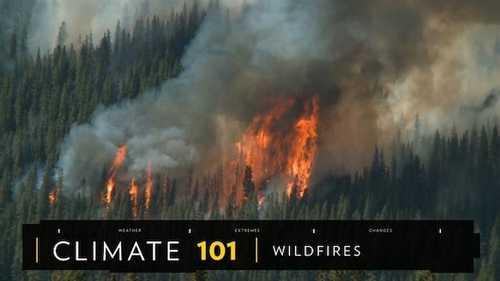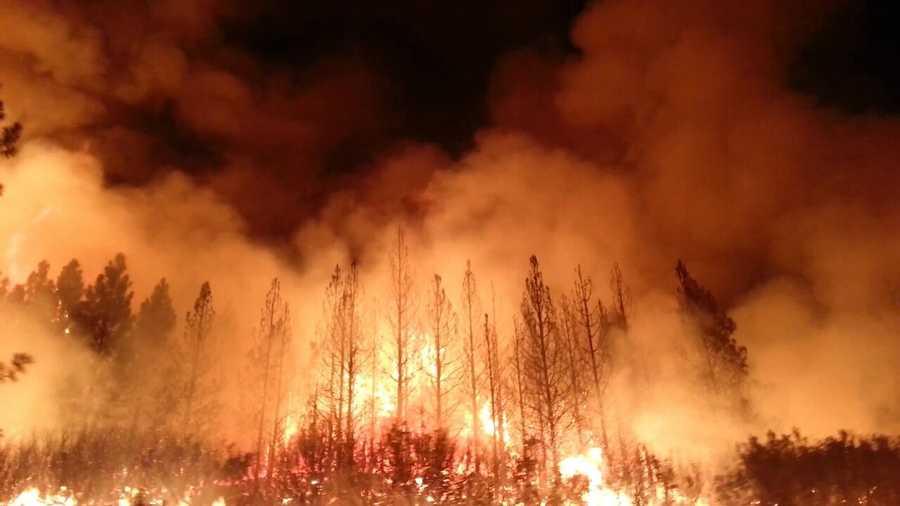Learn more about scienceandnature with this collection
How to choose the right music for different tasks
The benefits of listening to music while working
How music affects productivity
Understanding wildfires
Wildfires can spread across millions of acres of land in a very short time. These flames travel up to 14 miles an hour and can overtake the average human in minutes.
The destruction caused by wildfires in the United States has increased. Since 2000, about 72,400 wildfires have destroyed nearly 7 million acres of U.S. land. As more people are moving into rural and wilderness areas, it's vital to understand how wildfires get started and how to deal with them.
10
76 reads
How wildfires start
Only 10 to 15 percent of wildfires arise on their own. The rest is caused by humans, such as unattended camp and debris fires, cigarettes, and arson.
Natural wildfires can occur during dry weather and droughts, where the vegetation becomes dry, flammable fuel. A spark in the form of lighting, arson, a burning campfire or a cigarette, even the hot sun can cause a spark, warm temperatures can cause combustion, and strong winds can spread fire quickly.
9
24 reads
How wildfires are stopped
One of the three conditions that make and sustain a fire must be removed. These conditions are fuel, air, or heat sources that could help spark the wildfire.
- One method is to douse existing fires with water or fire retardants.
- Another is to clear vegetation from the land around the fire - called a firebreak.
- Lastly is creating backfires, where firefighters fight fire with fire. These controlled fires remove undergrowth, brush, and litter that could fuel a fire.
9
21 reads
Benefits of wildfires
Natural occurring wildfires play a vital part in nature. It burns decaying matter and can return trapped nutrients to the soil. It can act as a disinfectant by removing plant diseases and harmful insects.
Wildfires also thin forest canopies and undergrowth, enabling the sun to shine on the forest floor, helping new seedlings grow.
8
22 reads
Wildfire preparations
- If you become aware that a wildfire is moving toward your area, leave immediately.
- If you live in a fire-prone area, have an evacuation plan in mind with a bag with emergency supplies.
- Keep brush, weeds, and other potential fuels cleared from your property.
- Put away grills, propane tanks and other flammable materials in your yard.
- Close doors and windows, and fill containers with water to discourage fire. This includes sinks and tubs.
- Shut off the gas.
- Wetting your roof may reduce the risk of airborne embers catching.
8
14 reads
During and after a wildfire
when itDuring:
- If you can, leave.
- Listen for emergency alerts.
- Stay inside if you cannot leave. Go to the safest building with the lowest smoke levels. Breathe through a wet cloth if you don't have a mask.
- If you are caught outside, find a body of water to crouch in or a depression with the least vegetation. Crouch low for the best air, and cover yourself with wet blankets, clothes or soil.
After:
- Listen to authorities when it is time to return and when it's safe to drink the water.
- Avoid hot, smoky, or charred items.
- Text friends and family.
- Wear a dust mask.
- Beware of flooding.
8
12 reads
CURATED BY
More like this
5 ideas
How the Dutch Use Architecture to Feed the World
archdaily.com
7 ideas
Read & Learn
20x Faster
without
deepstash
with
deepstash
with
deepstash
Access to 200,000+ ideas
—
Access to the mobile app
—
Unlimited idea saving & library
—
—
Unlimited history
—
—
Unlimited listening to ideas
—
—
Downloading & offline access
—
—
Personalized recommendations
—
—
Supercharge your mind with one idea per day
Enter your email and spend 1 minute every day to learn something new.
I agree to receive email updates

